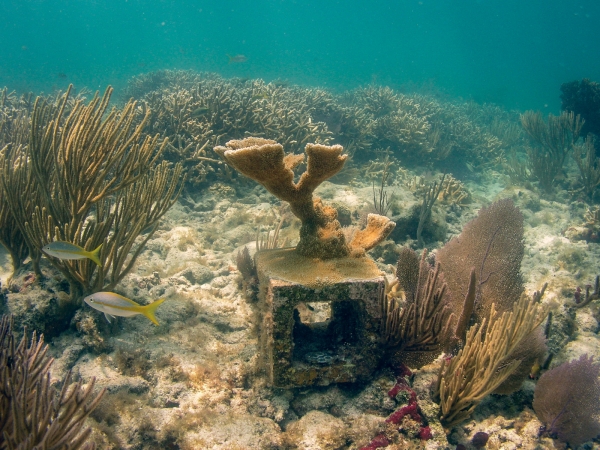In a new study, researchers have found that the restoration efforts of the critically endangered species elkhorn coral depend largely on the animal’s location, microbiome, and the right conditions to provide an abundance of food.
Their findings showed that the unique oceanographic conditions in Florida’s Dry Tortugas National Park provided corals with an opportunity to flourish, enhancing both coral growth and survivorship while positively influencing the coral’s microbiome – the thousands of diverse microbes that are naturally associated with them. The research also indicates that restoration efforts for the species would be most successful in areas that exhibit higher food availability, or places rife with zooplankton, a key source of nutrition that aids in coral tissue building and repair.
Over the last few decades, marine disease, climate change and a number of other environmental stressors have caused the elkhorn coral (Acropora palmata) population – once a major engineer of the reef ecosystem in the Caribbean – to experience a dramatic decline. Although small patches of these corals are still found in the Caribbean, today the species appears to be functionally extinct in Florida, said Andréa Grottoli, senior author of the study and a professor of earth sciences at The Ohio State University. While there are coral colonies left, there aren’t enough of them to effectively reproduce.
“In other parts of the Caribbean, there are little pockets where there are enough of them, but in general, elkhorn coral is a highly sensitive species,” said Grottoli. “It’s no longer the primary coral on the Florida and Caribbean reefs, and that’s a huge loss to that reef ecosystem function.”
Read more at Ohio State University
Image: A colony of threatened elkhorn coral that has grown over the sides of an cinderblock experimental platform. (Photo Credit: USGS)


